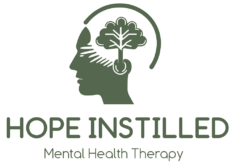CHRONIC RELAPSE OF SUBSTANCE ABUSE & ADDICTION
"The wound is the place where the Light enters you” – Rumi
ADDICTION & DRUG ABUSE CHRONIC RELAPSE THERAPY IN NEW JERSEY
Substance abuse and addiction are serious conditions that can have a profound impact on individuals. The road to recovery demands dedication, proper treatment, and strong support systems. Even with these resources, the journey is often filled with obstacles.
Breaking free from the cycle of substance use, recovery, and relapse can be incredibly difficult. A study from the National Institute on Drug Abuse shows that 40–60% of individuals in treatment for substance abuse will experience a relapse at some point in their recovery. While relapse is a common aspect of the recovery process, it can feel deeply disheartening and like a major setback.
For those who struggle with repeated relapses, the experience can be especially frustrating. Chronic relapse may lead to feelings of despair, undermining a person’s belief in the possibility of lasting sobriety.
CHRONIC RELAPSE THERAPY IN NEW JERSEY
If you or someone you care about is having trouble breaking free and staying free of addiction, seeking a professional evaluation and treatment is strongly encouraged.
At Hope Instilled, we understand that your mental health is essential, and we’re here to help you tap into its strength so you can live a happier, more fulfilling life. You are more than just a case file to us — we reject one-size-fits-all solutions for treating addiction.
We believe mental health care should be accessible, personalized, and welcoming for everyone who needs support.

Schedule a Free 15 Minute Consultation Today
There’s no reason to delay. Connect with Hope Instilled today, and take a step towards your mental health goals. We’ll be happy to take your call.
Getting Started Is Simple

- Fill out the form on our Contact Page and we’ll gather some information and set up a 15 minute call with a therapist.
- Attend your 15 minute welcome call. You’ll have a consultation where you can share how you’re feeling and decide on the next steps together.
- Make Progress & Feel Better – Work with me to resolve your mental health issues and become more confident in yourself.
- Aftercare – I would love to say that every success is permanent. However, life has its detours which may lead you back to me for a return visit. It’s OK, we would love to chat again and help you get back on the road to mental wellness.
Frequently Asked Questions
No.
Despite the stigma that often surrounds it, substance abuse and addiction are chronic medical conditions affecting millions worldwide. Like other long-term illnesses, they require ongoing care and management to reduce the risk of relapse. Recovery from addiction and co-occurring mental health issues is a complex process involving physical, emotional, and psychological transformation—and it doesn’t end with completing a treatment program.
Relapse is a common and often disheartening part of the recovery process, both for individuals and their loved ones. It’s natural to question whether a relapse means that treatment has failed.
RELAPSE CAN ACT AS A LEARNING EXPERIENCE
While setbacks can be difficult, relapse is frequently a part of the path to lasting recovery.
Relapse can provide valuable insight, helping individuals recognize the triggers and situations that contribute to substance use. It also offers an opportunity to develop healthier coping strategies and acknowledge when additional support or treatment may be necessary to sustain recovery. It’s important to remember that relapse is not a sign of weakness or failure—it’s a common and expected part of the recovery journey.
Relapse can be a challenging experience, and finding your way back afterward often takes strength and determination. What many people don’t realize is that relapse typically starts well before any actual substance use occurs. It unfolds in three stages:
- First comes the emotional stage, where difficult feelings and triggers begin to surface. For instance isolating yourself from others, defensiveness and irritability.
- Next is the mental stage, marked by persistent thoughts and cravings. For example, trying to rationalize using “just this once”.
- Finally, the third stage is evidenced by physical behaviors (insomnia, lack of appetite, lack of motivation). This is the stage that physical relapse occurs – returning to substance abuse.
Understanding these stages is key to recognizing warning signs early and taking steps to stay on the path to recovery.


